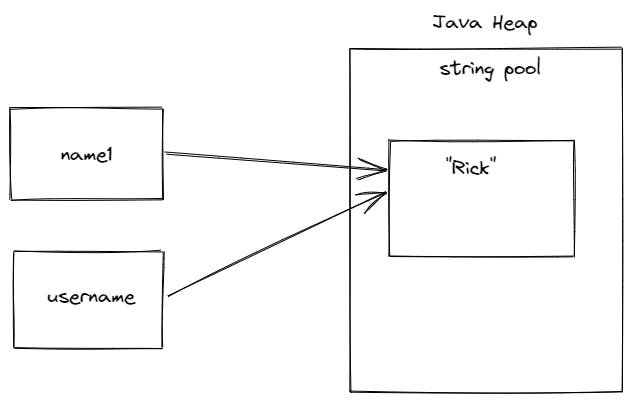What Is Immutable Strings and How It Functions
In the world of programming, recognizing the principle of immutable strings is extremely important for creating secure and robust applications. Unalterable strings describe strings that can not be altered after they are created, making certain information honesty and predictability within the code. This fundamental principle plays a crucial role in different programming languages and offers an unique technique to dealing with information. By checking out the complexities of how immutable strings function, one can uncover a globe of advantages and opportunities that can raise the top quality and performance of software growth.
The Fundamentals of Immutable Strings
Unalterable strings, as a basic idea in programming, are personality sequences that can not be transformed as soon as they are created. This suggests that when a string is designated a worth, that value can not be modified. In languages like Python and Java, strings are immutable things, causing various effects in terms of memory management and information honesty.
One of the key advantages of immutable strings is that they provide a complacency in information manipulation. Given that the material of an unalterable string can not be modified, it guarantees that the initial information remains undamaged, lowering the risk of unplanned modifications during program implementation (Why are strings immutable in Java?). This home likewise streamlines debugging procedures, as designers can rely on that once a string is defined, its value will not be unintentionally modified
When a brand-new string is created based on an existing one, rather than changing the initial string, the brand-new worth is stored individually. Overall, comprehending the basics of immutable strings is important for understanding programming ideas and maximizing code performance.
Benefits of Unalterable Strings
Building upon the safety and efficiency benefits of immutable strings, their benefits reach enhancing code integrity and streamlining simultaneous programming jobs. By being immutable, strings can not be modified after development, which gets rid of the threat of unplanned changes in the data they keep. This fundamental immutability makes sure that when a string is created, its value remains continuous throughout the program's implementation, reducing the opportunities of insects triggered by unforeseen alterations.
Additionally, unalterable strings add to code dependability by making it much easier to reason regarding the state of a program. Considering that strings can not be altered, designers can trust that a string will certainly constantly hold the exact same worth, simplifying debugging and maintenance initiatives. This predictability causes much more steady and reliable codebases.

Execution in Shows Languages
Within various shows languages, the unification of immutable strings is a fundamental aspect that influences how data is managed and adjusted within code structures. The implementation of unalterable strings differs across various shows languages, with each language supplying its very own mechanisms to support this principle.

On the other hand, languages like C and C++ do not have integrated assistance for immutable strings. Designers in these languages should by hand apply immutability by check over here implementing guidelines within their code to stop straight adjustments to string items.
Best Practices for Functioning With Immutable Strings
When handling unalterable strings in shows languages like Java and Python, adhering to finest practices guarantees safe and reliable information manipulation. Among the crucial best methods is to make use of StringBuilder or StringBuffer as opposed to straight manipulating strings, especially when taking care of comprehensive concatenation operations. These courses provide mutable options for string control, assisting to avoid unneeded memory appropriations and improving efficiency.
Additionally, when functioning with sensitive information such as passwords or API secrets, it is critical to stay clear of storing them as ordinary text in unalterable strings. Using safe and secure storage space systems like char ranges or specialized libraries for handling delicate info aids alleviate safety dangers associated with immutable strings.
Real-world Applications and Instances
Discovering sensible executions of unalterable strings in various industries exposes their significant influence on information stability and system reliability. In the healthcare field, unalterable strings play an essential duty in making sure the security and confidentiality of person information. By protecting against unauthorized adjustments to delicate details such as clinical documents and prescriptions, unalterable strings aid keep compliance with stringent privacy regulations like HIPAA.
Economic establishments also gain from the immutable nature of strings to boost the safety of customer information and purchase records. Unalterable strings assist prevent scams and unapproved alterations to economic information, offering a robust defense versus cyber hazards and making sure the trust fund and confidence of clients.

Conclusion
Ideal practices for working with immutable strings consist of staying clear of straight alterations and making use of methods that return new string things. Real-world applications of unalterable strings consist of information file encryption, caching, and string manipulation tasks.
Unalterable strings refer to strings that can not be modified after they are created, guaranteeing information honesty and predictability within the code. When a brand-new string is developed based on an existing one, instead than changing useful content the original string, the new value is stored individually.In languages like Java and Python, strings are unalterable by default, suggesting that once a string object is created, its worth can not be changed - Why are strings immutable in Java?. Finest practices for working with unalterable strings include preventing straight adjustments and using techniques that return brand-new string items. Real-world applications of unalterable strings consist of data file encryption, caching, and string adjustment jobs
Comments on “Why Are Strings Immutable in Java? Comprehensive Analysis for Designers”